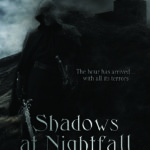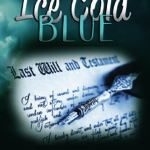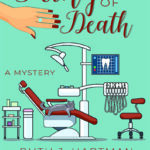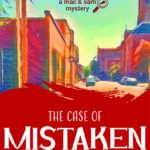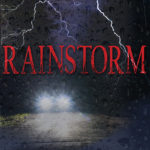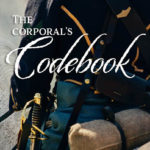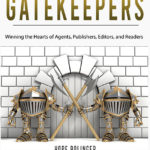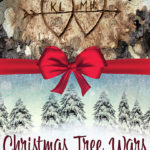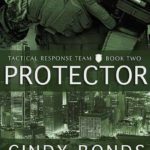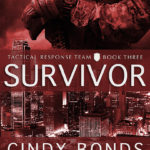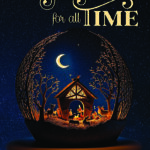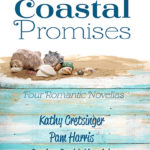
Whether in fiction or nonfiction, conversational style contributes to good writing. However, it tends to be wordy. Once we’ve written a piece, our next job is to cut it. Separate the wheat from the chaff and let the wind carry the chaff away.
The first step is to recognize the chaff.
Certain words fly the red flag of wordiness. Prepositions, for instance, often accompany wordiness. Prepositions are essential parts of speech, but they must be limited and controlled. Here are a few examples of how to rewrite prepositional phrases:
- in the event that: if
- on a daily basis: daily
- at this point in time: now
- a sufficient number of: enough
- members of the faculty: faculty members
Repetition and redundancy also contribute to wordy writing. Here are some rewrite examples to eliminate those pests:
- basic fundamentals: fundamentals
- past history: history
- end result: result
- a consensus of opinion: consensus
- pre-plan: plan
- pre-heat: heat
Another culprit to watch for is beginning sentences with words such as “in” and “there.” For example, consider the following passage and its rewrite:
Original: There was, indeed, plenty to see even in the fading light of an autumn day. There was a small lawn surrounding a fish pond and edged with crazy paving. There was a succession of trellis archways leading from one carefully tended plot to another.
Rewrite: The garden presented a rich vista even in the fading light of an autumn day. Trellis archways separated the carefully tended plots, and a small lawn edged with crazy paving surrounded a fish pond.
Vague qualifiers (very, really, etc.) also contribute to wordiness, as do unnecessary adverbs (moved quickly verses “hurried” or “rushed”). Specificity, too, can become wordy. Words and phrases such as “most,” “many,” “what many describe as” seem specific, but are chaff.
Original: Educators meeting at a conference are discussing what many describe as one of the greatest barriers to educational change.
Rewrite: Educators met at a conference and discussed one of educational changes greatest barriers.
The rewrite eliminated the unnecessary and is written in active voice, rather than the previous passive “meeting at a conference” and “are discussing.” It is likely that the conference would have ended when the piece is printed, so switching to past tense makes sense and weeds out wordiness.
Other catchphrases to watch for:
- as quickly as possible: immediately
- give consideration to: consider
- have the need for: need
- start talking about: discuss
- was declared the winner: won
Practice eliminating wordiness by rewriting the following sentences (I know–they’re bad!):
- The fact that Harriet didn’t seek advice from Ozzie made him feel disappointed.
- He enrolled in this class in the view that fiction writing is a subject in which he takes an interest.
- Prior to moving to Houston, Charlie Brown lived in the city of San Antonio.
- Cinderella is of the opinion that her stepmother needs to make changes in her attitude toward her.
- Suzy Q thought to herself about the fact that there were three or four people in her class who said that the new science teacher needed to give a demonstration of how the new equipment functions.
The difference between the almost right word & the right word is really a large matter–it’s the difference between the lightning bug and the lightning. ~ Mark Twain, in a letter to George Bainton, 10/15/1888
I once read a rough draft manuscript that contained so many adverbs, I called the author “the ‘ly’ lady.” The overuse of vague qualifiers isn’t confined to new writers. The following passage is from a speech delivered by an educator:
We’re trying very, very hard to improve our students’ basic language skills, which are admittedly very low. It has been very challenging indeed, but we are very pleased to report some very small improvement after months of very intense effort.
This paragraph can be distilled to a simple sentence:
We’re trying hard to improve our students’ abilities.
Most often, the over usage of vague qualifiers isn’t done on purpose–it’s a bad habit. Another habit we can break as we strive to become better writers.
As you go back through your prose, circle every adverb. Some qualifiers enhance the writing and are necessary. (Example: In the phrase “trying hard,” the word “hard” is a specific adverb, not a vague qualifier). However, the vast majority of qualifiers are vague and can be replaced with a specific noun or verb. Perhaps when you’re writing the first draft, a specific verb or noun didn’t come to mind. During the revision process, examine each instance of adverb use. Rewrite all the vague ones.
Here’s a hint to help as you’re scratching out qualifiers:
Qualifiers are used for one of two purposes: to strengthen a “too weak” word or tame a “too strong” word. Very, extremely, entirely, etc., are examples of fortifying qualifiers. Adverbs such as slightly, fairly, rather, etc., are examples of words used to tone down the word used.
Replacing the qualified “almost right word” with the right word will make your prose sing.
Here’s a suggested list of words to watch for:
- Very
- Extremely
- Totally
- Completely
- Wholly
- Entirely
- Utterly
- Really
- Quite
- Rather
- Somewhat
- Slightly
- Fairly
We’ll learn yet another way to cut the fluff and make our content more compelling in the next lesson where we’ll prune prepositions.
Until then,
Happy Writing!
(The posts in this series are tagged Creating Compelling Content.)











